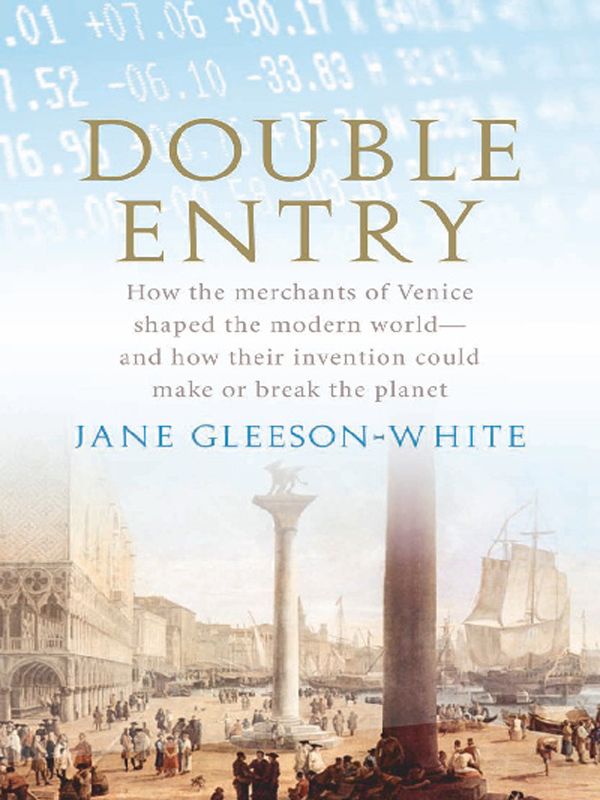Hippo reviewed Double entry by Jane Gleeson-White
Putting accounting into context in today's world—and what a context it is!
4 stars
I stumbled upon this book when I was learning about accounting in order to get my personal finances in order. While I came in expecting to read mainly about the methods used by the merchants and sailors, the introductory quote itself hinted at much more.
After going into the origins of accounting and how it spread across Europe—the suspicious gaze of the Church notwithstanding—Jane Gleeson-White goes on to describe how accounting changed the way people think about wealth: of themselves, of their nations, and even of the planet! It's not just the simple act of bookkeeping, but also the idea of measuring wealth: tabulating everything into a standard form, and then using that to draw conclusions.
The main problem today is, of course, that what doesn't get entered into account books is ignored (as exemplified in Kennedy's famous speech about GDP). This is an argument I've heard in many books, but refreshingly, this book didn't dwell on the same points as everyone else, instead skipping on to different aspects of the problem.
A lot of science and history is also touched upon, again through the accounting lens—including how accounting helped finance Darwin's famous expedition, and how the idea of counting and quantifying things helped propel the development of modern scientific methods. One interesting tidbit I didn't know was that Karl Marx was also very interested in what accountants were doing, and his knowledge of accountancy helped form his theories of capitalism! Going even further, it has been suggested that without accounting, the capitalist world we know may not have been developed.
Like many history books, this one looks at things through a predominantly Western lens. While there is mention of how numerical notation and accounting technology came from places like India via the Middle East, all the focus is on what happened in Italy and other parts of the Western World. Perhaps we can't fault it because it is after all a book on double-entry bookkeeping: specifically, the method that developed by the merchants of Venice. It would be nice, though, to see how accounting methods developed in other places, independently at first, and then presumably being "standardised" to European practices as that part of the world gained dominance.
It would be remiss of me not to mention that the book does go into detail on the origin of double-entry bookkeeping itself, as well as how Luca Pacioli took advantage of the printing press to popularise the technique. There are also quotes from early accounting texts, and what's striking is that the method has remained largely unchanged to this very day!
As I mentioned, I was learning about accounting before reading this book. All the "Credit" and "Debit" and different kinds of accounts were confusing me though; reading about the origins in this book and actually imagining how merchants and other people were using it at that time helped me understand where everything was coming from. I wouldn't say I'm completely clear on when to use "credit" or "debit" records yet, but at least I'm now comfortable enough that I'm sure I can figure it out if I sit down and think it through for a bit. And in the meantime, I do know that Robinson Crusoe sat and figured out his own version of double-entry bookkeeping too 😉

